PodCastle 919: FLASH FICTION EXTRAVAGANZA: Possibilities
Show Notes
The Only Map is Memory and CoverLetter_Version5 are rated PG. Valfierno is rated PG-13.
The Only Map is Memory
by B. Morris Allen
I use my memory for a map. It’s the only map I have, but it’s unreliable in the way all memory is. Objects that I remember as big must have been smaller, locations that were green and lush are dry and brittle, spaces that were broad and empty are cramped and crowded. Or maybe they’re not the right ones at all, and I’ve been fooling myself since I started. It wouldn’t be the first time.
I’ve spent a lifetime traveling, searching for one place or another, always on the wrong road, taking the wrong fork, going the wrong way. After my last trip to nowhere, I decided to use the only map I know is true.
Except it’s not.
I know where I’m going, what my goal is. I know that if I make it there, I’ll end up right where I started. When I was young, I would have jeered at that. Now, I realize all that confidence and self-satisfaction and arrogance spilled out across my memory like an inkstain, blotting out the truth and leaving me guessing. If it weren’t for the dark footprints I left, I’d have nothing to go on at all.
Almost nothing. I remember paradise.
I remember learning to shift planes, travel worlds, change realities, whatever you choose to call the power my family has. My grandmother taught me, and my father did, and my aunt. Small things, always. “Make a change that you can remember,” they said. “A thing you can change back.”
And I did, at first; I was cautious. A new leaf on a branch. A new branch on an elm tree. A chestnut where an elm had been. A forest where a meadow had been. Bigger, more complicated changes, but always ones I could hold firmly in my mind, that I could change back at any time. Always reverting one change before starting the next. My cousins laughed at me for being so careful. But in truth, I was afraid of change. I had nothing to do but play and laugh and run with the dogs and climb trees. And if I was hungry, all I had to do was change a pine tree to an apricot and there was my snack. Paradise.
You know how that story goes. In every world, in every dimension, it’s the same. We had paradise and then we threw it away. For lust, for love, for pride. I did it for all three — for Uriah with his high cheekbones and strong arms and sweet laugh and lack of interest in me.
Out on a picnic one day, newly come into our manhood — so we thought — he challenged me to stretch my powers, to match him. So long as it was safe.
He showed me his — he changed the grass, the creek, the trees, the hills, the sky. One by one, then two things at a time, then three. After he brought us back home, he lay back and smiled challengingly, dubiously, provocatively. And I changed it all.
The grass from smooth lawn to lumpy crabgrass. The creek from babbling brook to raging torrent. The rolling hills to rocky crags. The gray sky to stormy black. Everything, except the safe, smooth circle around our blanket. I changed it all at once, and I forgot the way back.
Even Uriah, with all his strengths, couldn’t change it back. We were only apprentices in the craft of our family, forbidden to change more than we could hold in our mind. There were memory tricks, and ways to work beyond that, but we hadn’t learned them, barely knew of their existence.
Now, a lifetime later, I think we could have waited, and the family would have found us. We hadn’t gone “far”, in a manner of speaking. But we were young and afraid and impetuous. We changed things the best we could, but our house and its surroundings were gone. Beyond the trees where it should have been was nothing but meadow. And when we truly began to fear, we argued.
In the end, Uriah set off in one direction, making smaller and smaller refinements with the hope of eventually finding home. I took another path, making grander and grander changes, sure of each and always wrong. Confident that, someday soon, I’d find home behind the next hill, the next forest. I turned back a day later, feeling lonely and small, but Uriah was gone. Instead of waiting, I turned outward again, forcing myself to revel in the adventure of it. Eventually, I found things to enjoy, but more and more now, I look back at the idyll of childhood.
I’ve honed my memory with practice, made it a powerful tool of precision and accuracy — or so I think. But there’s nothing I can do to fill the gaps already there at the start and those that have developed over time.
I’ve been back from time to time — almost. I came back to the lawn once, to the house, to the people. Only they didn’t know me, didn’t recognize me, didn’t welcome the prodigal son. They turned their backs, changed me away from them, left me lost as ever.
I use my imperfect memory as a map. I know the folds and the tears and the blank spots and the edges where be dragons. I’ve lightened the stain of arrogance with a little humility, but there’s nothing beneath it now. I traverse it anyway, always welcoming discovery, always disappointed by the unfamiliar. I’ve lived in a thousand worlds now, but never made any of them mine.
I keep looking, but I wonder now, about that house and those cool strangers — whether that lack of recognition was because the change was wrong or the change was in me. And when I look across my map for a memory of myself, there’s nothing there.
Valfierno
By David McGuire
They caught him in the city square, trying to sell the Gorgon’s Head.
People scurried by in their hundreds. Looking at their feet; keeping a wide, respectable circle. Avoiding the wild-eyed old charlatan with his obvious fake. As if you could just buy a legendary relic on a street corner. Guaranteed military victory, sealed in a small, brown mahogany box. A box which must never be opened, for fear of unleashing its vast, destructive power. Convenient.
Nobody recognised the mystical armoury’s curator-in-chief, caked in sewer grime. The most trusted man in the city was hardly a public figure. So they looked away. Shuffled past, embarrassed. And so missed the greatest bargain of this — of any — lifetime.
The police cordon, when they closed in, were baffled. To throw away a lifetime’s work and a position of honour. To steal the most famous, most dangerous artefact in the world. To commit treason, and with no plan? No buyer? No escape? It made no sense. They evacuated a wide area. A man that desperate might do anything.
I was elsewhere, but I heard the standoff lasted all morning. The curator with his box, and the officers with crossbows trained. I like to picture them, frozen in place while the wind tweaked at their robes and skittered leaves around the paving. Until, exhausted, the old man stooped, set the box at his feet, and stepped back. The officers swarmed, and dragged him to the dungeon for questioning.
He blamed a man called Valfierno. A stranger who somehow knew about his habits. His debts. The threats to his family. Who offered protection, and payment — half in advance — in return for a simple prank. Hide the Head, just for a while. But when the curator came to return the relic, the pedestal was watched. The stranger, his assurances, and the rest of his money, were gone. So the old man took the box and ran.
The detective closed bloodshot eyes and pinched the bridge of her nose. She took a breath and listened to a slow drip, drip, drip from the dungeon ceiling to a puddle below. For two days, two nights, she had scoured the city. Stormed underworld hideouts. Questioned suspected spies. All without a whisper reaching the public. No panics incited, no riots provoked.
She opened her eyes. And then the curator-in-chief crawls from the sewer, stands in the city square, and tries to make a deal. Worse, he blames a phantom.
Predictably, the curator could offer no useful description. Valfierno was of average height. Normal build. With a plain, featureless face.
The detective snorted. She leaned close to the curator’s cheek and smelled days of constant fear. She hissed out a list of buyers: rivals at each border, pinned back by the box’s threat alone. The barbarian horde, clad in hide and smeared with blood and dye. The arcanists, jealous to study and harness the relic’s power. The aristocrats, with their arched eyebrows and bottomless wealth. And the technologists, whose contraptions had stuttered and crumbled under the Gorgon’s glare. Any army would pay richly to march behind the Head. And now, all were massing their forces, emboldened.
“The penalty for treason,” she whispered, “is death.”
Blood drained from the old man’s face. He babbled excuses: there was no buyer; the box had not left his side. He had only tried to sell when Valfierno vanished, and hunger made waiting beneath the city impossible. Even then, he’d failed. It all started in jest, and spiralled out of hand. Surely, no harm was done.
The detective turned away and drew her blade. She examined its edge; reflected beams of firelight ghosted across the wet stone wall.
“We’ll never know, will we?” she sighed, advancing. “We only have your word. It’s not like we can open the box. Until the next war, of course. . .”
At least, that’s what I imagine she said. I was travelling.
Deep behind borders to the East, North, West, and South, four generals faced a similar dilemma. One in a carpet-strewn tent at the heart of a vast encampment with rich, blood-red banners flapping overhead. One locked in a granite stronghold, where bright potions bubbled and steamed. One beside a vast, polished desk and a magnificent oil painting of a valley battle scene. And one behind a powerful, lit magnifying glass, serenaded by an orchestra of clanks, rattles, and whirs.
Each one stood, lost in thought. Each knew their spies had been questioned about the disappearance of the fabled Gorgon’s Head. And each was staring at a small, brown mahogany box.
To steal the world’s most powerful relic, and sell it to a foreign power, would make you very rich. You could live the rest of your life in comfort — but in fear of the city’s assassins eventually finding you, taking revenge. But to sell it four times, without stealing it? That would bring unimaginable wealth, and freedom besides. A person could simply disappear, and live as royalty. As a rumour. A phantom.
With nothing to do but relax. Travel. Play.
And, sometimes, tell stories.
CoverLetter_Version5
by Courtney Floyd
Four other versions of me crowd around the kitchen table, waiting for version five to get done with the bathroom. Or for breakfast. Or for me to say something. Or for anything, really. All they do is wait, wait, wait.
Until they don’t.
My advisor says it’s perfectly normal — mage candidates pouring too much of themselves into job applications their first time on the market can lead to all kinds of grief.
“You’re manifesting your own potential futures,” she assured me when this all started, “They’ll fade with time.”
That was months ago, and her words grate now. She meant them as a kindness, a lifeline, an expression of solidarity. But fade isn’t the right word for what’s happening to my futures, and neither is normal. The wrongness corrodes.
I can’t hide my foul mood. Across from me, someone sighs, and I don’t have to look up to know that some version of me has tilted her head. The precise angle of that tilt, the degree to which her eyes are narrowed in concern, the way she’s angling her body toward me, preparing to soothe or hearten, are coded into my DNA.
But I’m not in the mood for another pep talk.
Avoiding my own expectant stares, I pull my noise canceling headphones on and get back to work, crafting more versions of myself, each application a prism I use to bend my essence into a different light. I don’t know what else to do.
I am writing to apply for the position of Assistant Professor — Alchemy which was advertised on the American Association of Magic Universities and Programs job list.
I am writing to apply for the position of Assistant Teaching Professor, Spell Composition which was advertised on the Magic Education Recruitment Consortium website.
I am writing to apply for the Lecturer position . . .
I am writing —
The bathroom door opens, and the version of me who might become a post-doc at the University of Virginia adjusts her skirt as she walks toward us.
Reluctantly, I drag my headphones back off.
“It’s time,” she says.
She’s transformed my tarnished-penny hair with a sleek blowout, and her blazer — complete with elbow-patches — perfectly complements the color of her manicure. I bite off a ragged hangnail, considering the dirt under my own unvarnished nails so I don’t have to think about the reason my shoulders have hunched themselves up toward my ears.
It’s been more than double the time the search committee said they’d take to send out responses for the post-doc gig, a long unsubtle silence that told us to prepare for this moment. We’ve both known it was coming, it’s almost a relief to know the moment’s finally here, and still I’m not ready.
“I’m sorry.”
Her shrug is almost prim. Her eyes flick to Assistant Professor me, who’s been here for almost a year now with no response from the search committee. The time has not been kind to her, and I can see the at least of that in Post-doc me’s eyes. At least I’m not doomed to wither. At least I’ll go out bright and beautiful. At least I have closure.
“No risk, no reward,” she says, in a voice that is mine and not mine. She’s me — all of them are me — wearing my skin and using my expressions, confronting and cajoling me with my own memories and dreams. But I can’t think of myself as her. Not entirely. I tailored myself so fully to the job posting that she manifested. A possible future made full-fleshed reality.
And I hope there’s a reward, I really, really do. But that hope’s a frail thing compared to the pain of understanding: I don’t ever get to become her.
“Good luck,” Post-doc me adds, as the air around her begins to shimmer. She waves to the others, who crowd around her with tear-choked benedictions. She’s engulfed by the thin, almost translucent form of Assistant Professor me, who rocks her back and forth while they hug. Teaching Professor me wipes away tears with the sleeve of her plaid overshirt, shoving her hands deep into overalls pockets. The frazzled frown on Adjunct me’s tired face exacerbates the dark smudges under her eyes as she watches, bearing broken witness. Lecturer me moves in for a hug when Assistant Professor me steps aside.
“You were fabulous,” she me says, wiping tears off of Post-doc me’s face.
My inbox dings. Post-doc me jerks. A shiver runs through her, top to toes, and she crumples.
Lecturer me groans as she catches her, and again as she lowers her down to the floor. The others gather, cursing and crying.
I look away from the absurd, beautiful, heartbreaking ritual. Me and me and me and me and me — four animate, one not — grieving and comforting and dead. The words on the computer screen are less visceral, if not less gutting.
. . . overwhelmed with strong applications . . .
. . . unfortunately, we will not be advancing you to the next round . . .
I close my laptop and help Lecturer me and Teaching Professor me carry Post-doc me to the spare room, stacking her on all the ones who fell before her.
My dead futures fill the room like cord wood racked up against winter, and I wonder if every mage out there — every single one, from Professors Emeritus to adjuncts juggling teaching jobs just to stay barely afloat — has a pile of their own immaculate corpses. I wonder if this is what my life will be, from now on. A constant fracturing of futures, full of potential and promise until they stumble. Perversely, persistently tangible even when they fall. I wonder if the future I eventually get to inhabit can ever fit quite right, after all this.
And then, I close the door.
I am writing to apply for the position of Instructional Consultant: Magical Pedagogy. I hold a Mage degree in Alchemy and have five years’ experience as instructor of record in Spell Composition courses . . .
Host Commentary
…aaaaand welcome back. That was “The Only Map is Memory” by B. Morris Allen, and if you enjoyed that then his website has a whole bunch of stories linked going back nearly fifteen years, at bmorrissallen.com
He sent us these notes on today’s story: I listen to music all the time, and some of my story ideas come from lyrics (sometimes misheard). Matraca Berg is one of the world’s many under-appreciated songwriters. On her album Sunday Morning to Saturday Night, she has a beautiful song, “The Resurrection”, that includes the line, “Using my memory for a map”. Another song, “That Train Don’t Run” has the lines “Must be your memory / Rattlin’ the shutters”, which I remembered as “Must be your memory / Travelin’ light”. Those formed the seed of the story, though it then went off on a direction of its own, lightly inspired by Roger Zelazny’s Amber books, and tinged with my own short story “Dragons I Have Slain”. In the end, it’s a story about choices and mistakes.
…aaaaand welcome back. That was “Valfierno” by David McGuire, and as he mentioned in his bio, that was his first publication! Oh frabjous day, callooh, callay! Congratulations, David, and I hope I’m right in cross-referencing the facts of your bio to the contents of the Instagram profile @theboymcguire if folk want to follow you to find out more about your next stories.
About this one, David said: Unbelievably, this fantasy story was inspired by the real-life theft of the Mona Lisa in 1911. One news story claims a shadowy Argentinian con-man called Eduardo de Valfierno shipped six fakes around the world, before bribing a former Louvre employee to steal and hide the original. I was tickled by the simplicity of the idea, almost as much as the criminal mastermind who may or may not exist. The plot, the character, and the name stuck with me until eventually I had to write something down. The outline of a Keyser Söze figure was already looming, so my subconscious probably also raided The Usual Suspects for both the interrogation and this most unreliable of narrators.
…aaaaand welcome back. That was “CoverLetter_Version5” by Courtney Floyd, and although it was her first time at an Escape Artists podcast, if you head over to her website courtney-floyd.com then you will find not only more short stories at places like Fireside, Haven Spec and Apex, and a bunch of podcasts she’s done, but also information on her brand sparkly new novel, “Higher Magic”; to give you the blurb, “In this incisive, irreverent, and whimsical dark academia novel for fans of Heather Fawcett’s Emily Wilde series and R.F. Kuang’s Babel, a struggling mage student with intense anxiety must prove that classic literature contained magic—and learn to wield her own stories to change her institution for the better.”
About her short story today, Courtney says: In writing CoverLetter_Version5, I drew on my experience navigating the academic job market and ultimately deciding to let go of an identity (professor) I’d been working toward for almost a decade. I wanted to tell a story about the endemic precarity in higher education, the invisible mountains of work it takes just to get work, and the emotional impact of all the imagining and storytelling we do about ourselves in the process. There’s a strange sort of futurecasting that can happen when you’re searching for a job. Each application becomes a scrying, and we fill the possible futures we see and cultivate in them full of our hopes and our selves. Those imagined futures feel like real losses when they slip away. Around the time I graduated and began my first major job search, a new genre–“quit lit”–emerged in response to some of these issues. Academic after academic crafted personal essays about why they chose to leave higher ed and how they would continue to hold on to their research and identities as scholars, even as they grappled with their newly uncharted paths. This story was my belated contribution.
Thank you, one and all, for your notes, your stories, and your trust in us to present them. I genuinely thought each of them was marvellous, packing in a depth of emotion and an implied world far beyond their wordcount, and I hope you revisit each of them again, either by rewinding or by reading on the website, and letting them echo a little more in your mind.
Possibility is, as best we can currently tell, the underpinning of everything. From the quantum mechanics that manifest the whole universe to the random mutations that drive evolution and have led, down one branch, to us, the possibility of change is the only constant.
It’s also terrifying and I am tied into knots of anxiety about it constantly. I’m typing these host notes up on the evening of my 12 year old’s birthday, and I had a real moment last night as I realised I was saying goodbye to the 11 year old incarnation of my son for the last time, and would never know him again, and he would be behind me and beyond my reach forever. To which, I must admit, said child told me that I was saying obvious things and he’d still be the same tomorrow and I should shut up and go downstairs now, but he isn’t a parent yet, so he doesn’t understand!
The advent of smartphones as ever-present, ever-connected digital companions has done a lot of harm in a lot of ways, if I’m honest, socially and personally, but I do feel so very fortunate that I became a parent right about the time we all started having cameras on us all of the time. The record I have of my kids at every age, every moment, is unparalleled in all of human history, and almost every day there is a notification on my phone from between 1 and 10 years ago about some incredibly cute photo or video of them. Even more so than my parents’ generation, with their massive shoulder-mounted video recorders and grainy VHS tapes, I will always be able to remember the sound of my kids’ laughter when they were toddlers, in the quiet, unguarded moments of our lives.
But I can’t actually freeze them in time; I can’t, and absolutely 100% should not ever, stop them changing, and stand in the way of their possibilities. I can’t even stand in the way of my own. By the time this episode actually comes out I think I should know, one way or the other, whether the vacancy I’ve got an application in for right now is panning out or not, which if it is will be another two years of feeling unsettled and unsure of who I even am, just as I’ve gotten my feet under me in this one. And yes, having written a 500-word cover letter that hits all the Essential and Desirable Requirements, inevitably there is a part of my brain already daydreaming on what it would be like to be in that role, and if it doesn’t work out I will have to lay the corpse of that future out to rest in a backroom of my mind.
But we have to acknowledge, and accept, and I think most importantly commit to the changes. I’ve spent my lifetime telling myself that it’s better to regret the things you do than the things you don’t not because I am a carefree person to throw that motto around as I throw myself into things: but precisely because my instinct is the very exact opposite, and I have to repeat the damn phrase like the Litany Against Fear. But I can’t hide from change, and surely it’s better to face the possibilities on my own terms rather than have it forced upon me.
About the Authors
Courtney Floyd
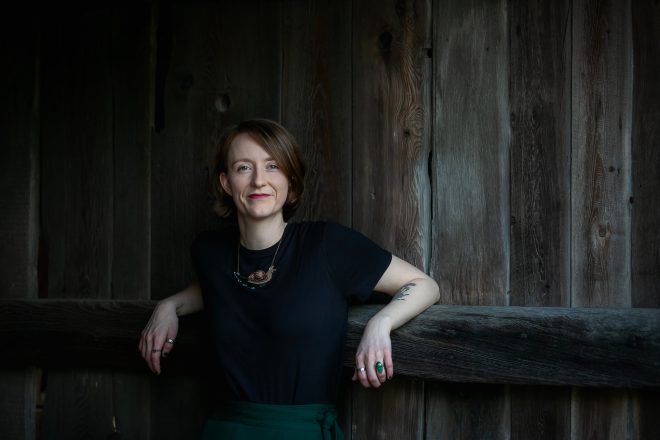
Courtney Floyd is a neurodivergent fantasy author who grew up in New Mexico, where she learned to write between tarantula turf wars and apocalyptic dust storms. She has a PhD in British Literature and a penchant for irreverent literary allusions. Her debut dark academia novel, Higher Magic, comes out with MIRA books October 7, 2025. Find her online at Courtney Floyd
David McGuire
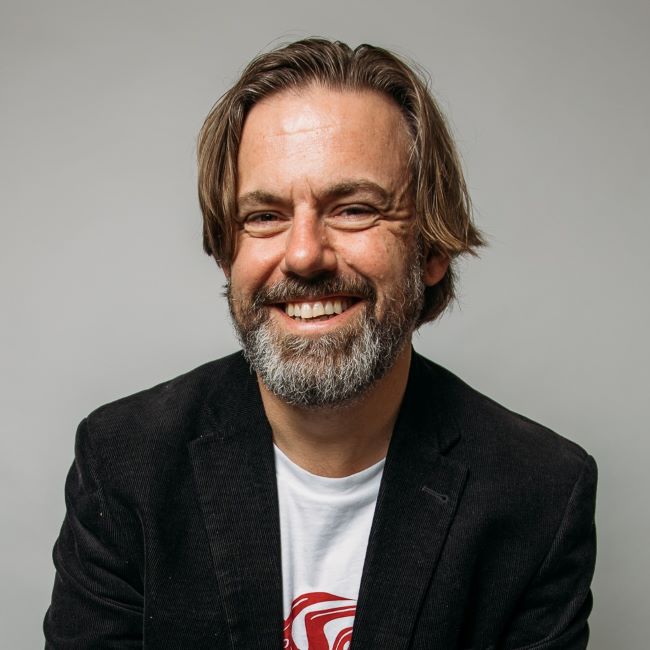
Find a map of the United Kingdom. Look as far down and almost as far left as you can go. Zoom right in, and that’s where you’ll find David McGuire – a man with two teenage daughters and a grey beard, who writes strange adventures for children and other people who haven’t grown up. His debut middle-grade manuscript THE JETSAM won both Falmouth Fringe Book Festival’s first chapters contest and Litopia’s “Pop-Up Submissions”, as well as being runner-up in Skylark Literary’s “Soaring Stories” competition. However, this is the first time one of his stories has published.
B. Morris Allen
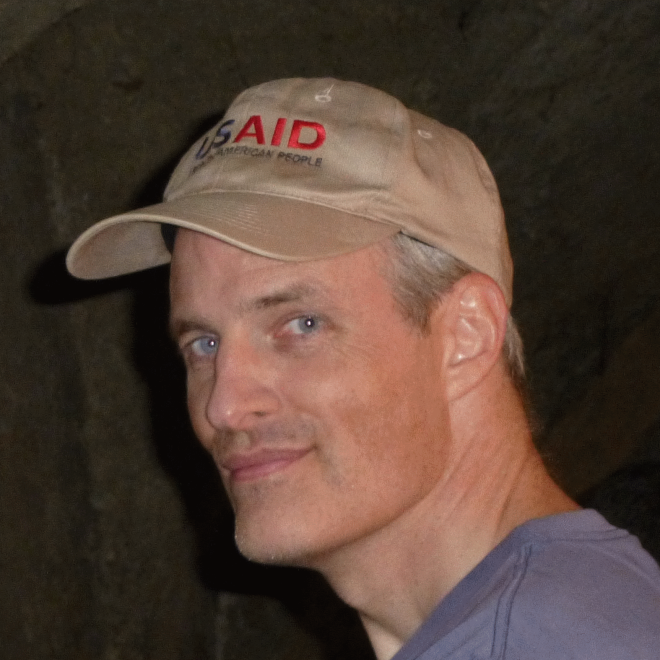
B. Morris Allen is a biochemist turned activist turned lawyer turned foreign aid consultant, and frequently wonders whether it’s time for a new career. He’s been traveling since birth, and has lived on five of seven continents, but the best place he’s found is the Oregon coast. When he can, he makes his home there. In between journeys, he works on his own speculative stories of love and disaster. He was the editor and publisher of Metaphorosis magazine for its nine year run.
About the Narrators
Hugo Jackson
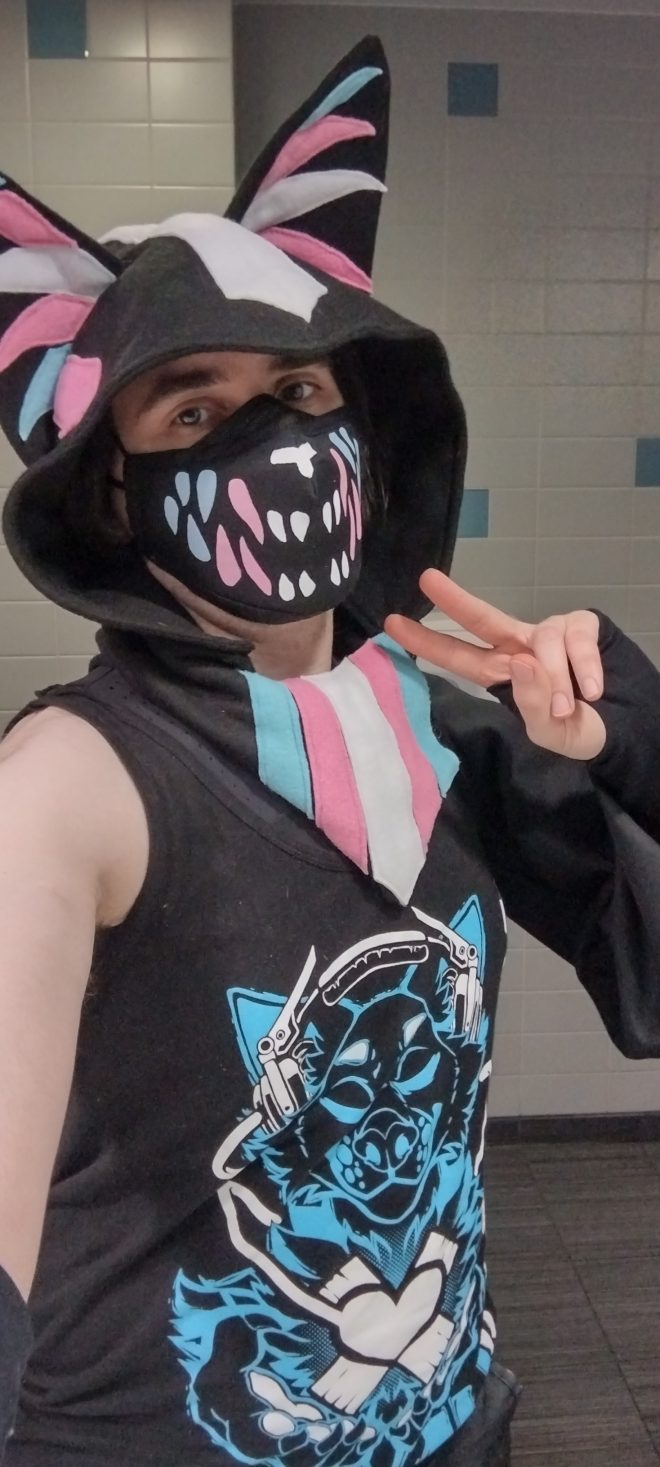
Hugo is an author and streamer on the East Coast of the USA. Born in the UK, they moved to the US be with their partner and has since published the first three novels of a five-book young adult fantasy series, The Resonance Tetralogy, through Inspired Quill (https://www.inspired-quill.com/product/legacy). They also stream semi-regularly on Twitch (username pangolinfox), and run a yearly charity stream on World Pangolin Day to raise money for one of their favourite animals, the aforementioned pangolin.
Kaitlyn Zivanovich
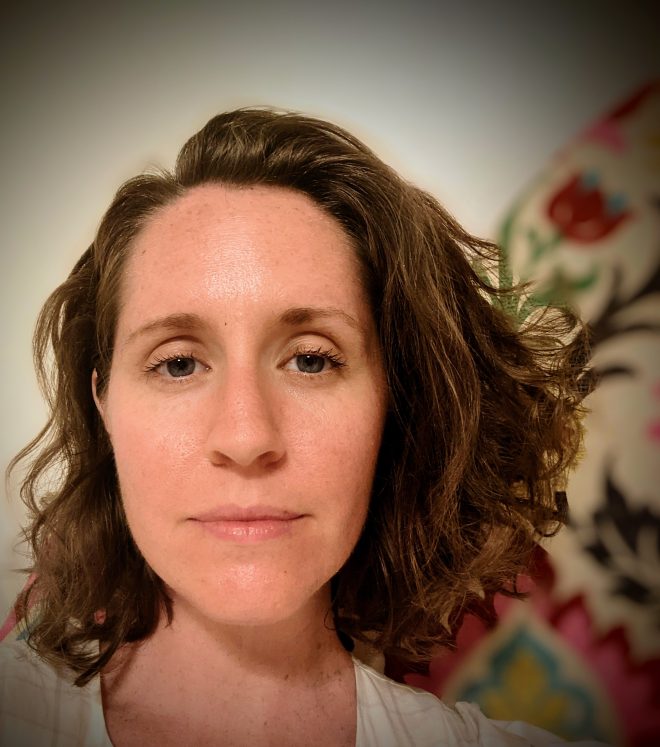
Kaitlyn is a former Marine Corps intelligence officer and current speculative fiction writer. She is a graduate of the Viable Paradise Workshop and writes short stories to avoid editing her novel. Currently living in Poland with her husband and four loud children. You can find her on twitter @KZivanovich and copyfol.io/v/kaitlynzivanovich
Steve Anderson

Steve Anderson has narrated stories for all three Escape Artists podcasts (including a Parsec Award-winning story for PseudoPod). He narrates audiobooks and produces online videos out of a home studio at SGAcreative.com, and he writes and performs live history programs on tour at GreatTalesLive.com


